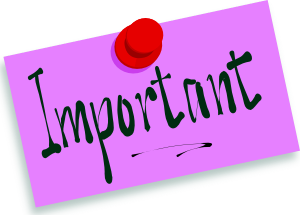Important SEO Factors
 The Most Important SEO Factors
The Most Important SEO Factors
On-Site SEO Factors
Content & SEO Factors
Research
Do your keyword research. Do not spend time on all the items below without first knowing what phrases to use for your website. Small mistakes here can have a big impact on the success of your online business.
Quality Content
Always create top-level content. Think of ways to delight your visitors. You will be rewarded with higher search position if you do so.
Engagement
Do people stay on your site or bounce away? If your site is viewed by the search engines as being unable to engage visitors then it will be pushed down in search. Pay attention to your bounce rate and take action to improve it if it is low.
Fresh content counts and counts a great deal. The last thing a search engine wants to present is a stale site that has not been updated for months or even years.
HTML & SEO Factors
Titles
A proper HTML title tag is very important. Make sure that each title tag is unique for each page. Do not, under any circumstances, copy and paste your title tag from page to page.
Descriptions
Use your HTML description tag effectively. Do not make it too short (<50 characters) or too long (>160 characters). Start with your most important keyword phrase and then insert one of the most significant sentences from the page. Always ensure a unique description tag.
Headings
Use H1, H2 and H3 HTML heading tags. The search engines look for these tags and give the words in these tags extra SEO weight and to use them also makes reading easier for humans.
Site Design & SEO Factors
Ease of Crawl
Ensure that your site can be crawled properly by the search engines. Use a well designed internal link structure. Make it easy for the search engines to crawl your site. If you make it hard they may miss pages altogether or take much longer (multiple trips to your site) to find all of your pages. In general make it easy for the search engines to work with you and you will be rewarded by them.
Make sure you create a pleasant visitor experience and optimize your pages for fast loading. This has 2 effects:
1) If the search engines have to wait for a long time for your page to load so that they can crawl it then they can crawl fewer pages at each visit.
2) If the search engines deem that the page loads slowly then they may penalize the page as slow loading decreases the visitors experience.
URLs
The URLs should be keyword phrases related the page content. There should be a preferred URL for every page (see duplicate content immediately below).
If your site has multiple paths to get the same content then you need to fix this by using canonical URLs. The reason is that multiple paths may lead the search engines conclude that your site has duplicate content. At a minimum this will add confusion. In some cases, they may choose not to display a duplicate page and if this page is your preferred page then this is not good for you.
Off-Site SEO Factors
Linking Quality
Get quality links. This means text links (as opposed to an image link) and with text using keyword phrases that relate to the page on your site which receives the link. Also, the text link should be from a paragraph that also relates to the page receiving the link. Get links from high-quality websites.
Linking Text
Make sure that some of the links you receive are made with generic phrases such as “click here”, “learn more”, “visit website” or even your company name or company URL.
Get links at a natural rate for your site. Too many links within a short period of time may raise a flag. In general the rate at which you get links should match the rate at which you add new, high-quality compelling content. This is another reason why to add new content is also valuable.
Link Quantity
The more high-quality links you can get into your site the better. Each link is like a “vote in favor” of your website and your website content. If no one links to your content your content the conclusion may be that your web content may not be that good. On the other hand, if many other websites link to your content then this is a clear signal to the search engines that your web content is good and worth linking to. The more in-coming links you can acquire the better the position of your site in the search results.
SEO Violation Factors
Keyword Stuffing
Stuffing keywords into your title tags, description tags and page content could get your pages penalized. Don’t keyword stuff.
Keyword Hiding
Using a text font color that is the same as the page background color can be a sure way to lose search position if you get caught. If your Search Engine Optimization Consultant does this then fire him (or her)!
Cloaking
This is when you present one version of the page to a search engine and another version of the page to your human visitor. If the search engines detect this then a penalty is sure to follow.
Link Spam
Link spam is when you comment on blogs and in forums and then create a links back to your site just for the sake of building links. Do too much of this and you run the risk of being penalized.
Follow the advice above and your search position is sure to improve. For all sorts of advice on how to search engine optimize your site continue to visit the SEO Notebook (bookmark the SEO Notebook) of WSI Global Reach.
